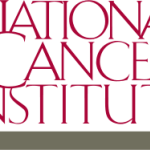- Sektör: Government; Health care
- Number of terms: 6957
- Number of blossaries: 0
- Company Profile:
The National Cancer Institute (NCI) is part of the National Institutes of Health (NIH), which is one of 11 agencies that compose the Department of Health and Human Services (HHS). The NCI, established under the National Cancer Institute Act of 1937, is the Federal Government's principal agency for ...
An orally bioavailable small molecule with potential antineoplastic activity. MET/VEGFR2 inhibitor GSK1363089 binds to and selectively inhibits hepatocyte growth factor (HGF) receptor c-MET and vascular endothelial growth factor receptor 2 (VEGFR2), which may result in the inhibition of tumor angiogenesis, tumor cell proliferation and metastasis. The proto-oncogene c-MET has been found to be over-expressed in a variety of cancers. VEGFR2 is found on endothelial and hematopoietic cells and mediates the development of the vasculature and hematopoietic cells through VEGF signaling.
Industry:Pharmaceutical
An orally bioavailable small molecule with potential antineoplastic activity. Selumetinib inhibits mitogen-activated protein kinase kinases (MEK or MAPK/ERK kinases) 1 and 2, which may prevent the activation of MEK1/2-dependent effector proteins and transcription factors, and so may inhibit cellular proliferation in MEK-overexpressing tumor cells. MEK 1 and 2 are dual-specificity kinases that are essential mediators in the activation of the RAS/RAF/MEK/ERK pathway, are often upregulated in various tumor cell types, and are drivers of diverse cellular activities, including cellular proliferation.
Industry:Pharmaceutical
An orally bioavailable small molecule with potential antineoplastic activity. Thioredoxin-1 inhibitor PX-12 irreversibly binds to thioredoxin-1 (Trx-1) and inhibits its activity, which may result in growth inhibition and the induction of apoptosis. Overexpressed in many cancer cell types, the low molecular weight redox protein Trx-1 regulates transcription factor activity and inhibits apoptosis, promoting cell growth and survival; it also interacts with growth factors extracellularly to stimulate cell growth.
Industry:Pharmaceutical
An orally bioavailable small molecule with potential antineoplastic activity. CHIR-265 binds and inhibits Raf kinases, which may result in a reduction of tumor cell growth and proliferation, and tumor cell death. In addition, this agent inhibits vascular endothelial growth factor receptor type 2 (VEGFR-2), thereby disrupting tumor angiogenesis. Raf kinases are critical enzymes in the Ras/Raf/MEK/ERK signaling pathway and are frequently upregulated in neoplasms.
Industry:Pharmaceutical
An orally bioavailable small molecule, belonging to the class of c-Met/hepatocyte growth factor receptor (HGFR) tyrosine kinase inhibitors, with potential antineoplastic activity. MET receptor tyrosine kinase inhibitor SGX523 specifically binds to c-Met protein, or hepatocyte growth factor receptor (HGFR), preventing binding of hepatocyte growth factor (HGF) and disrupting the MET signaling pathway; this agent may induce cell death in tumor cells expressing c-Met. C-Met, a receptor tyrosine kinase overexpressed or mutated in many tumor cell types, plays an important role in tumor cell proliferation, survival, invasion, and metastasis, and in tumor angiogenesis.
Industry:Pharmaceutical
An orally bioavailable small molecule, targeting the class I phosphatidylinositol 3 kinase (PI3K) family of lipid kinases, with potential antineoplastic activity. Class 1 PI3K kinase family inhibitor XL147 reversibly binds to class 1 PI3Ks in an ATP-competitive manner, inhibiting the production of the secondary messenger phosphatidylinositol-3,4,5-trisphosphate (PIP3) and activation of the PI3K signaling pathway; this may result in inhibition of tumor cell growth and survival in susceptible tumor cell populations. Activation of the PI3K signaling pathway is frequently associated with tumorigenesis. Dysregulated PI3K signaling may contribute to tumor resistance to a variety of antineoplastic agents including genotoxic agents and receptor tyrosine kinase inhibitors.
Industry:Pharmaceutical
An orally bioavailable small molecule, targeting the platelet-derived growth factor receptor (PDGFR), with potential antineoplastic activity. PDGFR inhibitor CP-868596 binds to and inhibits PDGFR, which may result in the inhibition of PDGFR-related signal transduction pathways, and, so, the inhibition of tumor angiogenesis and tumor cell proliferation. PDGFR, up-regulated in many tumor cell types, is a receptor tyrosine kinase essential to cell migration and the development of the microvasculature.
Industry:Pharmaceutical
An orally bioavailable small-molecule androgen receptor modulator and CYP17 lyase inhibitor with potential antiandrogen activity. TOK-001 exhibits three distinct mechanisms of action: 1) as an androgen receptor antagonist, 2) as a CYP17 lyase inhibitor and 3) by decreasing overall androgen receptor levels in prostate cancer tumors, all of which may result in a decrease in androgen-dependent growth signaling. Localized to the endoplasmic reticulum (ER), the cytochrome P450 enzyme CYP17 (P450C17 or CYP17A1) exhibits both 17alpha-hydroxylase and 17,20-lyase activities, and plays a key role in the steroidogenic pathway that produces progestins, mineralocorticoids, glucocorticoids, androgens, and estrogens.
Industry:Pharmaceutical
An orally bioavailable small-molecule inhibitor of Bruton's tyrosine kinase (BTK) with potential antineoplastic activity. BTK inhibitor PCI-32765 binds to and inhibits BTK activity, preventing B-cell activation and B-cell-mediated signaling and inhibiting the growth of malignant B cells that overexpress BTK. BTK, a member of the src-related BTK/Tec family of cytoplasmic tyrosine kinases, is required for B cell receptor (BCR) signaling, plays a key role in B-cell maturation, and is overexpressed in a number of B-cell malignancies.
Industry:Pharmaceutical
An orally bioavailable small-molecule inhibitor of CK2 with potential antineoplastic activity. CK2 inhibitor CX-4945 selectively binds to and inhibits the enzyme casein kinase II (CK2), which may lead to an inhibition of cellular proliferation. CK2, a protein kinase often overexpressed in a variety of cancer cell types, appears to be correlated with malignant transformation, tumor growth and survival.
Industry:Pharmaceutical
